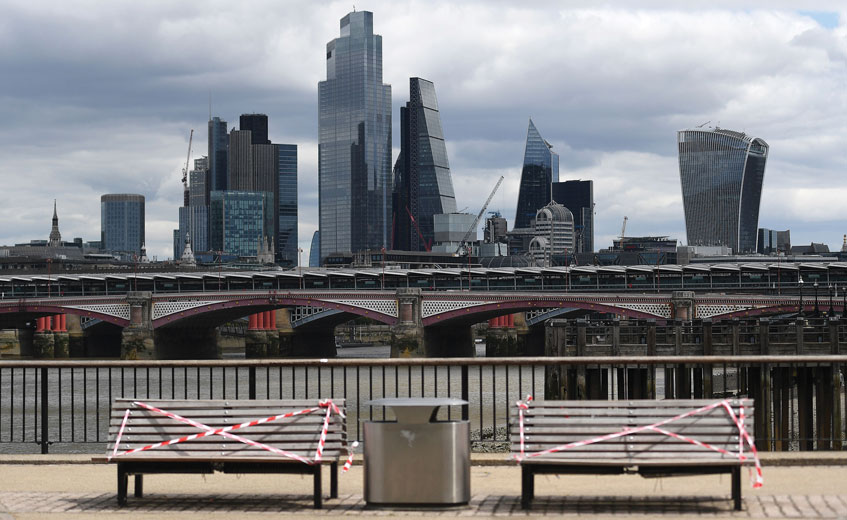The industry is finding London real estate a more attractive prospect for 2021 amid the economic fallout from the pandemic, according to the latest PwC and Urban Land Institute’s Emerging Trends in Real Estate Europe report.
London placed second after Berlin in the rankings for cities based on investment prospects in 2021, jumping up two places from the previous year. Paris rounded out the top three.
The survey, which polled 995 property leaders across Europe, found London’s real estate market offered a more comfortable choice for investors given its relative liquidity and status as a gateway for overseas capital.
Longer-term value
Gareth Lewis, real estate director at PwC UK, said: “It’s clear that at this time of significant uncertainty, investors continue to see Europe’s core cities as safer bets and there remains cautious optimism.
“With London jumping up two places to second in the rankings – despite the challenges faced by all major cities – many investors see the long-term value.
“Further, central banks’ decisions to depress interest rates for the foreseeable may see an uptick in investment activity as pent up capital is deployed.”
The appetite for real estate is evident – 55% of investors expect to be net buyers of real estate in 2021. However, income security in non-core assets is “causing concern”.
And as the hunt for yield intensifies in the low-interest-rate environment, 56% of property leaders are worried about sourcing finance, sharply up on last year. Half of respondents are concerned about availability of suitable assets to buy.
In terms of overall outlook, executives reported a 28% decline in business confidence, compared with 13% in 2019.
In addition, 44% predicted a fall in profitability, up from 15% last year. A quarter expected more job losses, increasing from 9% in 2019.
Capital flows
Executives also expressed nervousness around deal sourcing, amid ongoing uncertainty surrounding business travel and potential future lockdowns.
Domestic and European capital is expected to play a greater role in Europe next year, while travel remains severely limited for investors in the US and the Middle East.
Just over half (51%) expect US investors to shrink their investment activity in Europe. About a third predict European investors will increase their commitments next year, and a small majority expect this to stay stable.
A 53% majority of executives expect investors from Asia to ramp up their investments into Europe in 2021, although the report noted this percentage was significantly lower than in previous years.
Obsolescence fears rise
The pandemic has fuelled a rise in survey respondents voicing concerns about asset obsolescence next year, growing to 41% of executives, compared with 33% last year. Nearly half believe this problem will worsen over the next five years.
Data centres, logistics and life sciences topped the rankings for sector prospects. New energy infrastructure and industrial completed the top five.
No office sectors featured in the top 10 this year, including flexible, serviced and co-working spaces.
Lisette van Doorn, chief executive of ULI Europe, said: “European real estate is at a turning point, trying to work out its future role in society while facing the cyclical challenges following the outbreak of the pandemic earlier this year and the ongoing uncertainty this creates.
“Covid-19 has fast-forwarded a number of trends already started, for example related to digitalisation, remote work and online shopping, but given the artificial environment amidst ongoing lockdowns and government support to employees and businesses, it remains hard to work out the long-term impact.
“The search for yield, which is now even more dominant than pre-Covid, continues to attract investors to real estate, especially core and income-generating, such as residential that continues to appeal to investors, in the ‘safest havens’ across Europe.”
To send feedback, e-mail pui-guan.man@egi.co.uk or tweet @PuiGuanM or @estatesgazette











